Transforming Social Norms to Advance Women’s Political Participation
News details
Brussels, Belgium – On 4-5 February 2025, UN Women convened a two-day Expert Group Meeting (EGM) to address one of the most persistent barriers to gender equality in political and public life: discriminatory social norms. The event brought together feminist scholars, policymakers, activists, and practitioners to chart a path forward for transforming social norms and ensuring women’s full and effective political participation. This experts’ meeting was organized under the WYDE | Women’s Leadership, funded by the European Union, and under the leadership of UN Women’s Political Participation team, which is a collaborative global effort aimed at advancing women’s full and effective political participation and decision-making at all levels, especially those most often left furthest behind.
Despite decades of international commitments and mobilization, including the Beijing Platform for Action and the Sustainable Development Goals, women remain significantly underrepresented in political decision-making worldwide. Social norms continue to shape perceptions of women’s roles in decision-making, restricting their access to leadership positions, prescribing what their roles should be and reinforcing structural inequalities. As part of the WYDE| Women’s Leadership Initiative, UN Women is prioritizing social norms change and shifting attitudes that portray women’s roles in communities and society as incompatible with political power, to enhance women’s political participation. Over two days, feminist scholars, policymakers, activists, and practitioners were introduced to UN Women’s corporate work on gender equality social norms and also explored social norms that impact women’s participation in public life with the ambition to lay the groundwork for an approach towards addressing these norms and measuring norms change.
Gender Social Norms: A Barrier to Women’s Leadership and Representation
Highlighting the European Union’s (EU) commitment to gender equality, Lina Andeer, Policy Officer at the Gender Equality Unit of the International Partnerships Directorate General referred to the EU’s external Gender Action Plan III which not only features “political participation as one of the six priorities but also emphasizes the importance of intersectionality”. Lina Andeer welcomed the transformative approach of the WYDE Women’s Leadership programme through its work on social norms at all levels, from local to regional and global levels. Julie Ballington, Global Policy Advisor on Women’s Political Participation at UN Women also emphasized the importance of the work on social norms: “Many of us have been working for the past 25 years on temporary special measures such as quotas, which have been critical to advancing women’s political participation. But I always recall Drude Dahlerup framing quotas as shortcuts to power, because they bypass the culture and norms that hold women back. In fact, quotas were not designed to change culture and social norms, because it's extremely hard to change social norms through electoral engineering. This programme prioritizes social norms, starting with this expert group meeting, to better define them and identify ways to measure them”.
Experts underscored the importance of shifting social norms as a critical pillar of the broader agenda for women’s political participation: “The idea that men are ideal political leaders endures as a social norm to keep women excluded around the world. We need sharp, tailored tools of resistance to reverse it” said Sonia Palmieri, Head of the Department of Pacific Affairs at the Australian National University.
Jennifer Piscopo, Professor and Director of the Gender Institute at the Royal Holloway, University of London, further explained how national narratives mythologizing the “great men of politics” inscribe this norm into the public imagination, shaping on one hand who sees themselves as a potential political actor, while also perpetuating parties’ and voters’ beliefs that women are not viable political actors. While policy incentives were also discussed as important levers to shift gendered social norms, it was however pointed out that these policy interventions interact with norms in return, for instance when women succeeding in politics oftentimes are perceived rather as “exceptions” to the male dominated political history.
The experts examined how social norms manifest across various domains —family, political or economic institutions, media, and the digital space—affecting women’s political engagement and highlighted how entrenched gender biases not only limit women’s political ambitions but also sustain hostile environments that deter their participation. “The intrinsically gendered relations within informal institutions, such as family and kinship have broader political implications”, explained Naila Kabeer, Professor Emerita at the Department of International Development, London School of Economics. She added that “these ties operate beyond the domains of family, spilling over into the dynastic quality of leadership, in particular female leadership in some South Asia countries”.
Pathways to Change: Strategies for Transforming Social Norms
During the second day, experts focused on actionable pathways for changing discriminatory social norms. Experts emphasized the importance of shifting societal narratives to challenge stereotypes about women’s leadership, for instance by fostering positive representations and inclusive storytelling or by actively countering false narratives on women in politics to redefine perceptions of women in political spaces.
Participants also highlighted the need to strengthen feminist movements and civil society organizations, enabling them to advocate for change and counteract entrenched biases effectively. The cross-sectional coalition building and strengthening of networks was also highlighted by Sohela Nazneen, Senior Fellow, Institute of Development Studies, as an important strategy to “resist, subvert and counter the backlash and regressive norms”. Equally important as a pathway to transform norms is ensuring policy reforms that dismantle structural barriers and create an enabling environment for women’s political participation.
A panel on advocacy and communication strategies underscored the role of media in shaping narratives about women in politics, emphasizing the need for inclusive storytelling that showcases diverse women leaders. Abosede George-Ogan, Executive Director from Women in Leadership Advancement Network shared how the media ecosystem, which includes partner organizations, governments and media, need to closely collaborate to transform narratives efficiently and ensure representation of diverse women in leadership.
Measuring Progress and Next Steps
The meeting concluded with a discussion on measuring social norms change in the political sphere. Experts debated methodologies to assess shifting attitudes and behaviors, recognizing the complexity of translating social change into measurable outcomes. The insights from this discussion will inform the development of key messages to drive the work on social norms transformation under the WYDE | Women’s Leadership initiative. The outcomes of this Expert Group Meeting will also serve UN Women’s broader efforts to dismantle discriminatory social norms and advance women’s political leadership globally.
By fostering dialogue, strengthening advocacy, and leveraging research, the WYDE Women’s Leadership initiative and its partners will continue to work to ensure that women’s right to equal political participation is not just recognized but fully realized.
From left to right: Julia Meier zu Selhausen (Planning Officer Gender Equality, GIZ), Paro Chaujar (Advisor on Social Norms, UN Women), Emma Muteka (Member of Parliament Namibia), Jennifer Piscopo (Professor of Politics and Gender, Royal Holloway University of London). Photo: UN Women/Nejm Halla.
Funded by the European Union for a period of three years, WYDE | Women’s Leadership leverages collective action, partnerships, coordination, knowledge, and resources at global level to advance women’s political participation and decision-making through social norms change, networking and global advocacy. WYDE | Women’s Leadership is implemented by UN Women (lead partner), the International Institute for Democracy and Electoral Assistance (International IDEA), the Inter-Parliamentary Union (IPU) and United Cities and Local Governments (UCLG) and is part of the Women and Youth Democratic Engagement initiative (WYDE), powered by the European Union, that seeks to empower and strengthen the rights, and participation in public and political life of youth and women as key actors of development and change. The initiative promotes political pluralism and the inclusiveness of democratic processes.
Photos captions:
Photo 1: Expert Group in the UN House in Brussels (Photo: UN Women/Nejm Halla)
Photo 2: Lina Andeer, Policy Officer, Gender Equality Unit, International Partnerships, European Commission. Photo: UN Women/Nejm Halla
Photo 3: Jennifer Piscopo, Professor and Director of the Gender Institute at the Royal Holloway, University of London. Photo: UN Women/Nejm Halla
Photo 4: Sohela Nazneen, Senior Fellow, Institute of Development Studies. Photo: UN Women/Nejm Halla
Photo 5: Abosede George-Ogan, Executive Director of Women in Leadership Advancement Network (Nigeria). Photo: UN Women/Nejm Halla
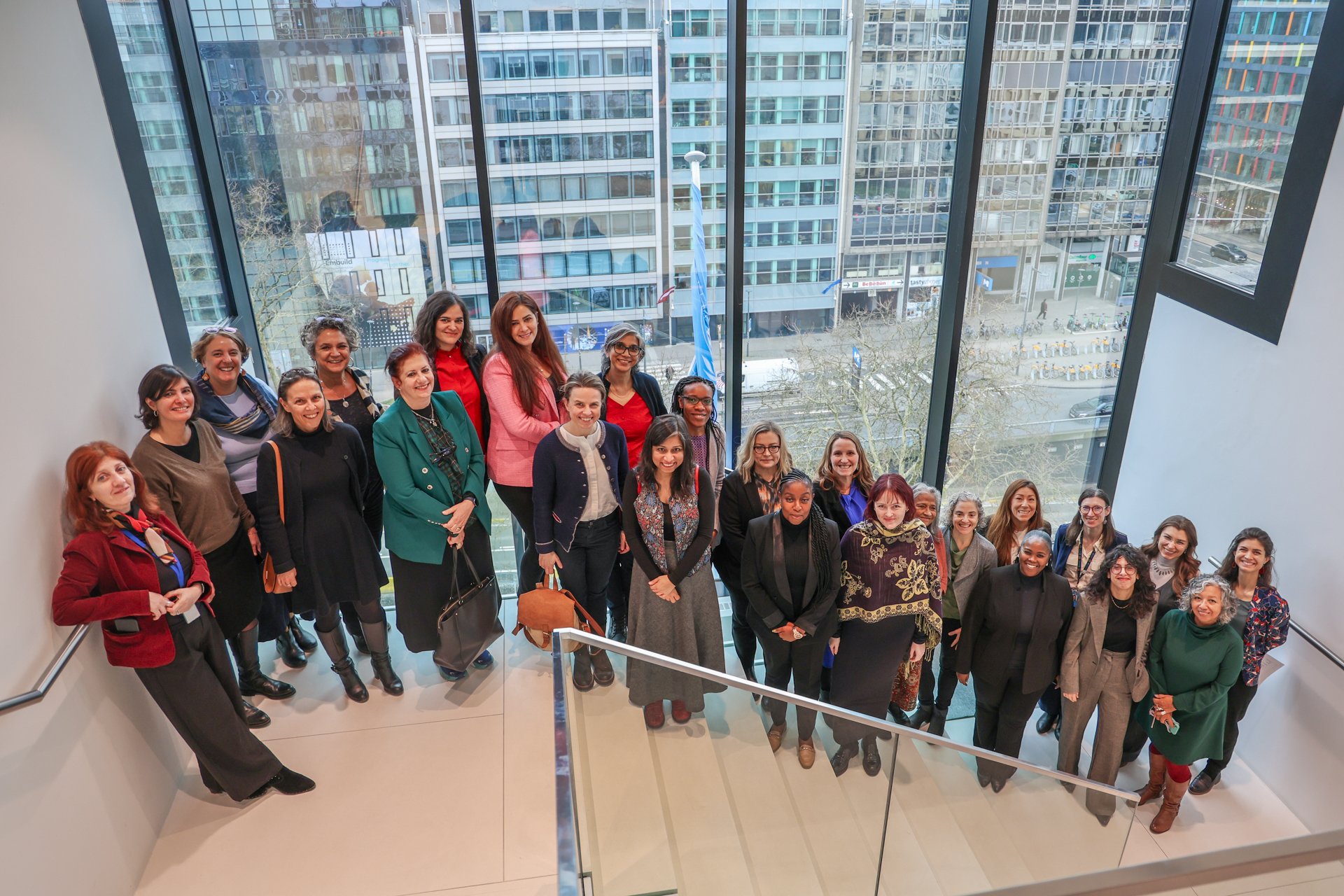
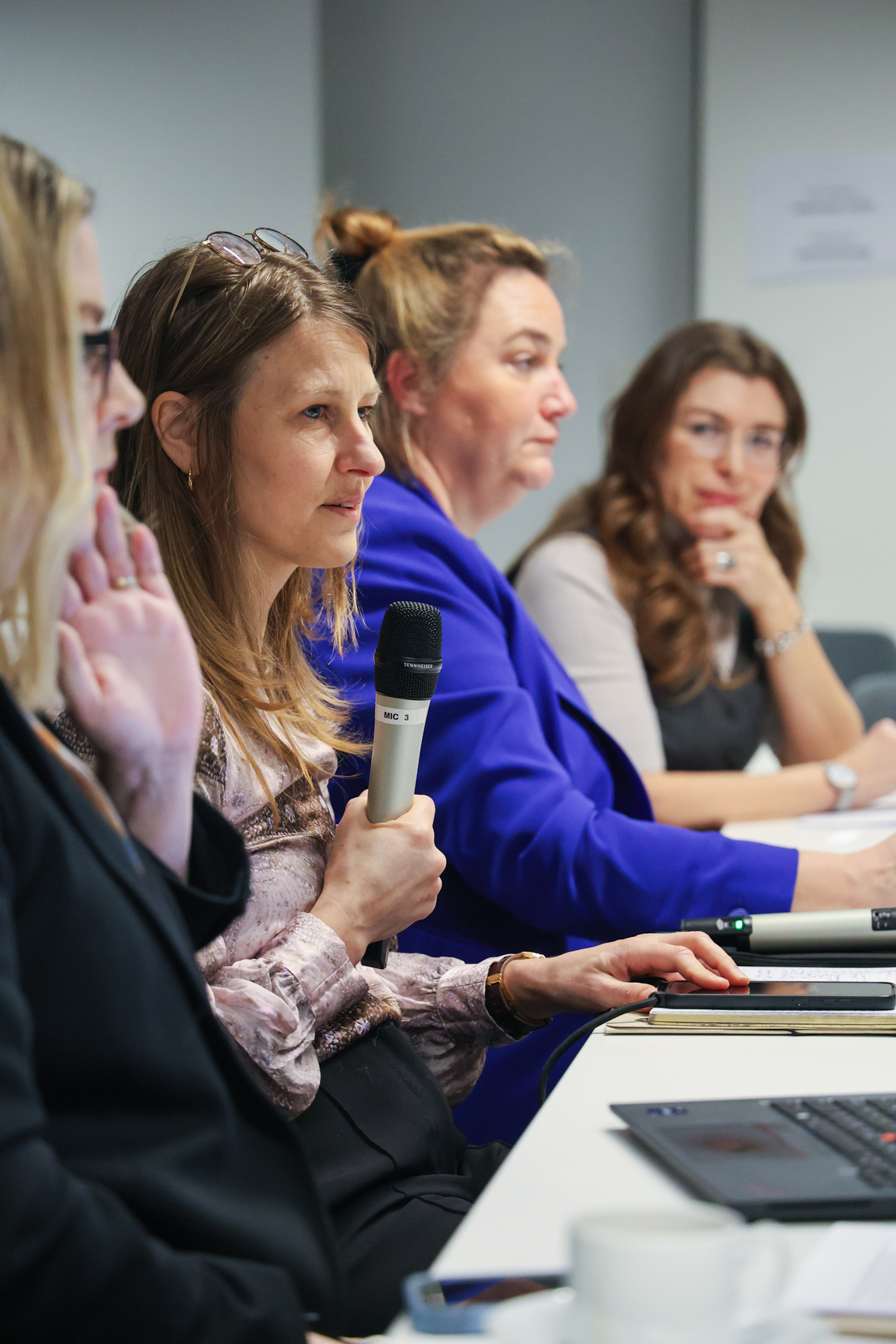
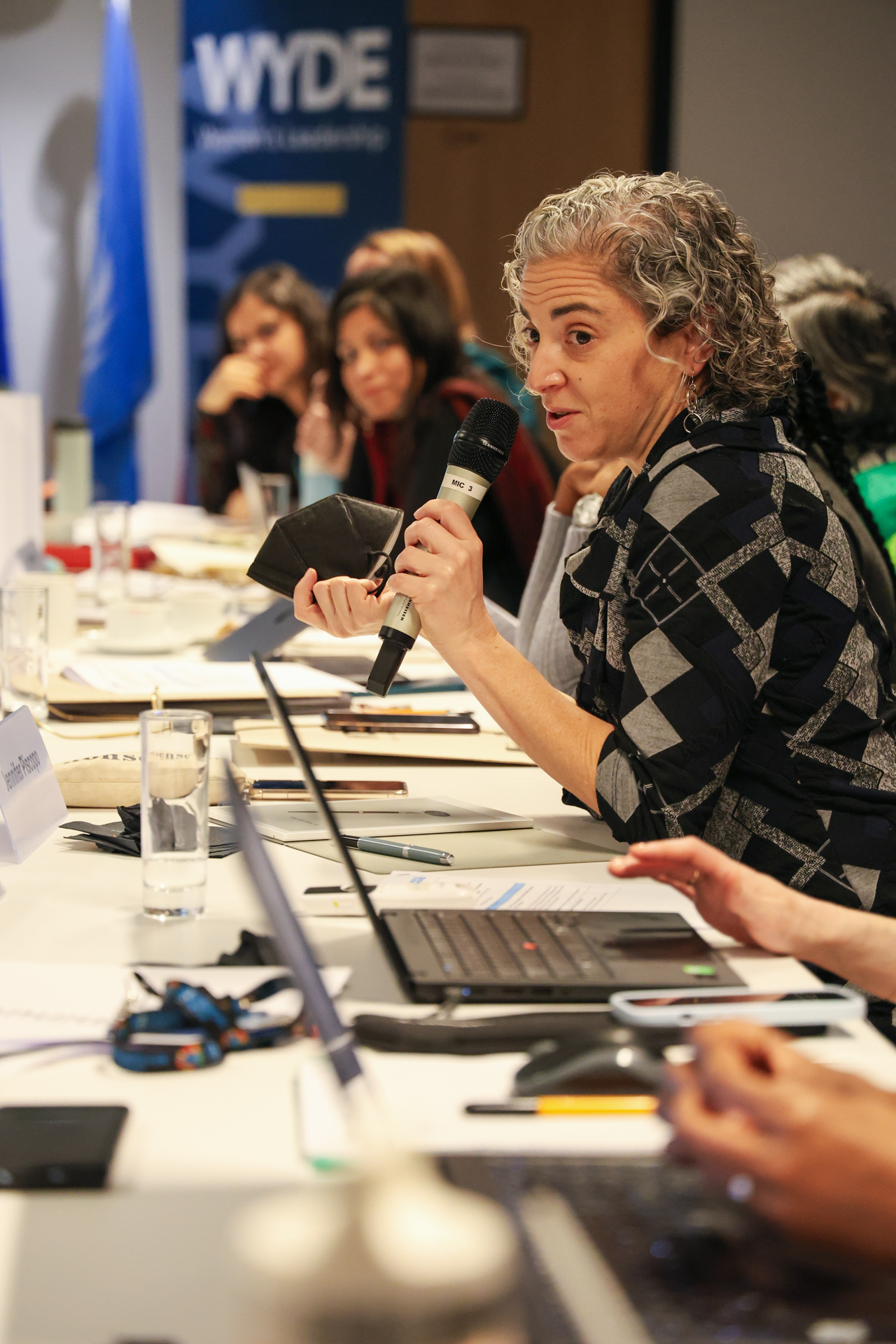

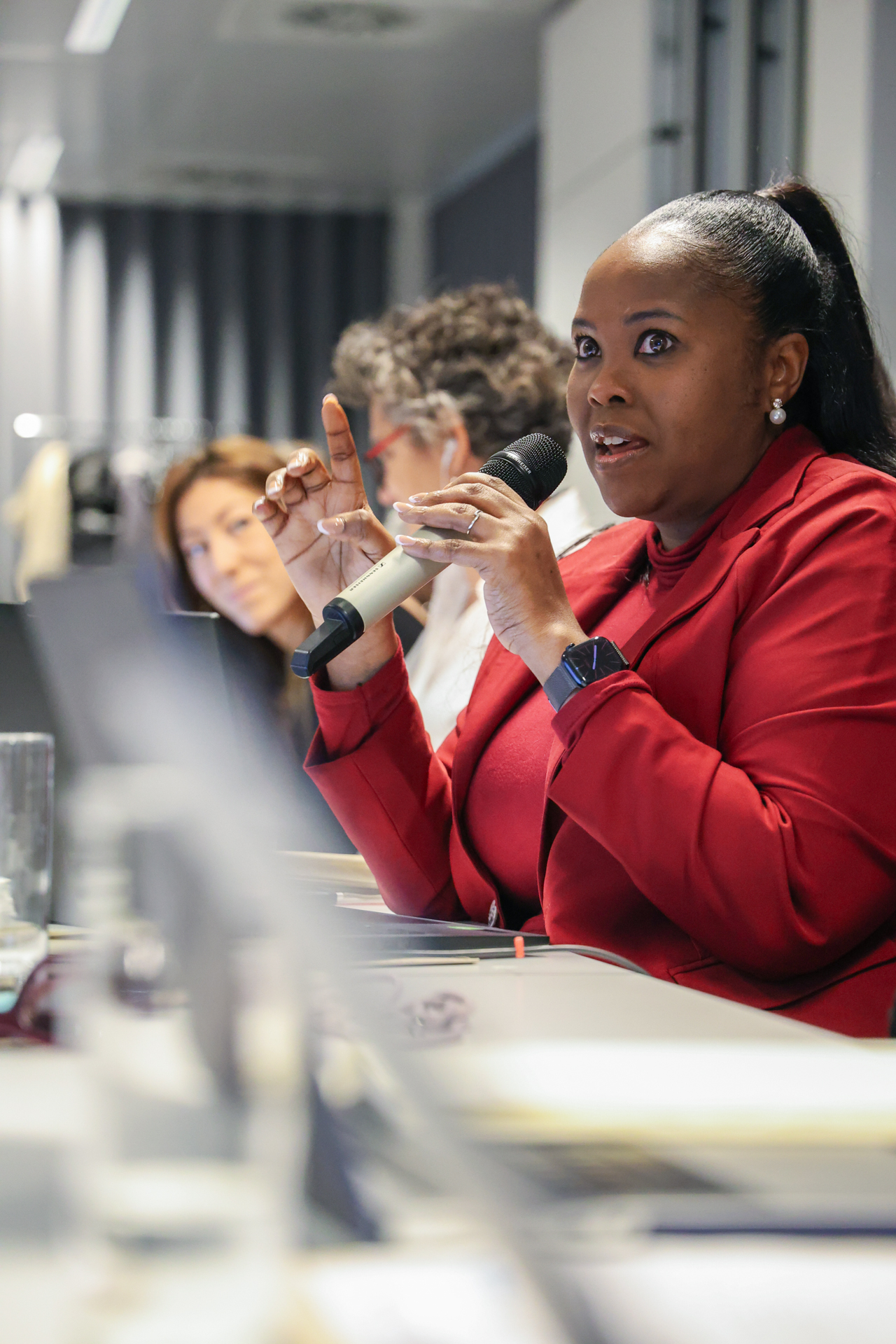
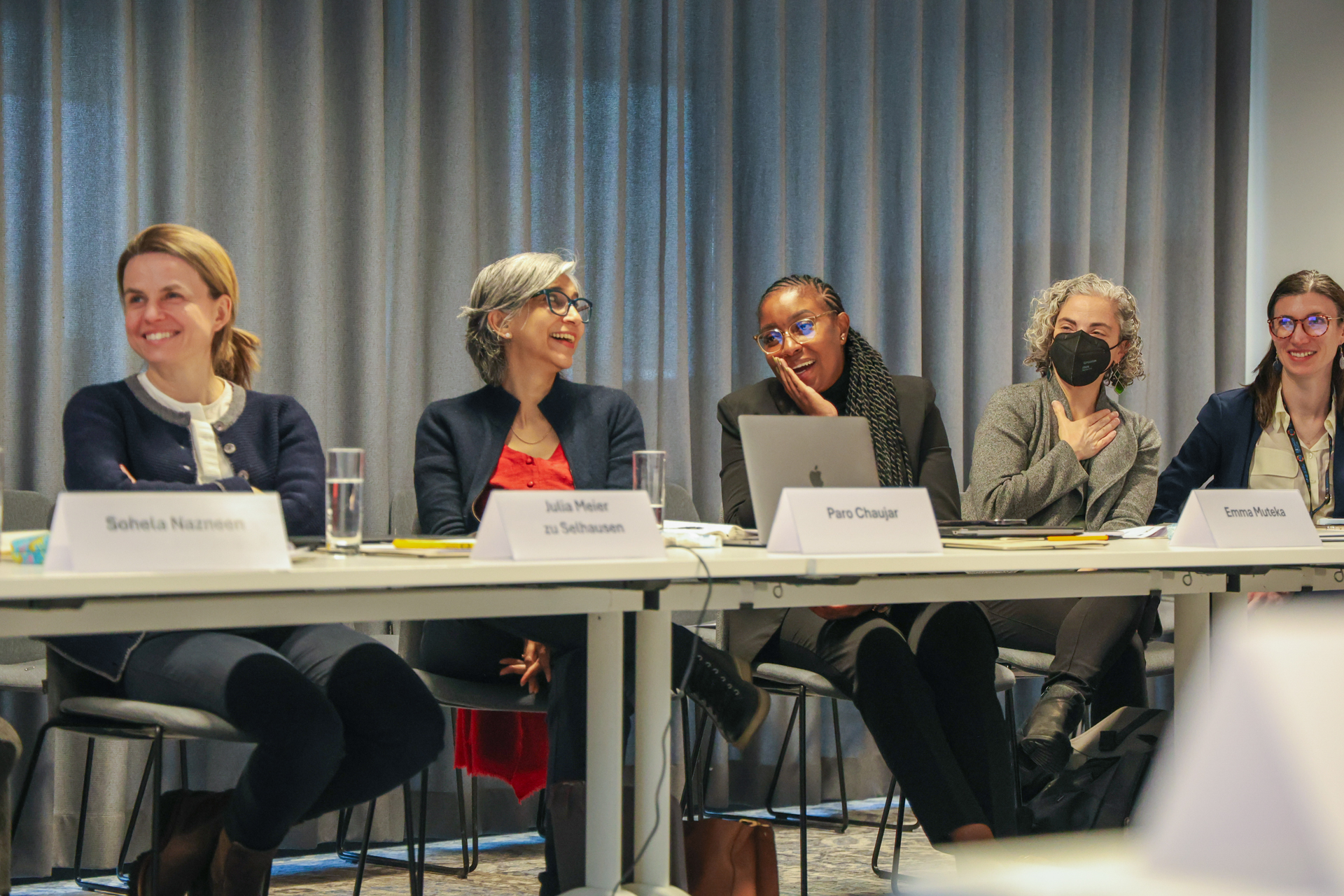
Log in with your EU Login account to post or comment on the platform.